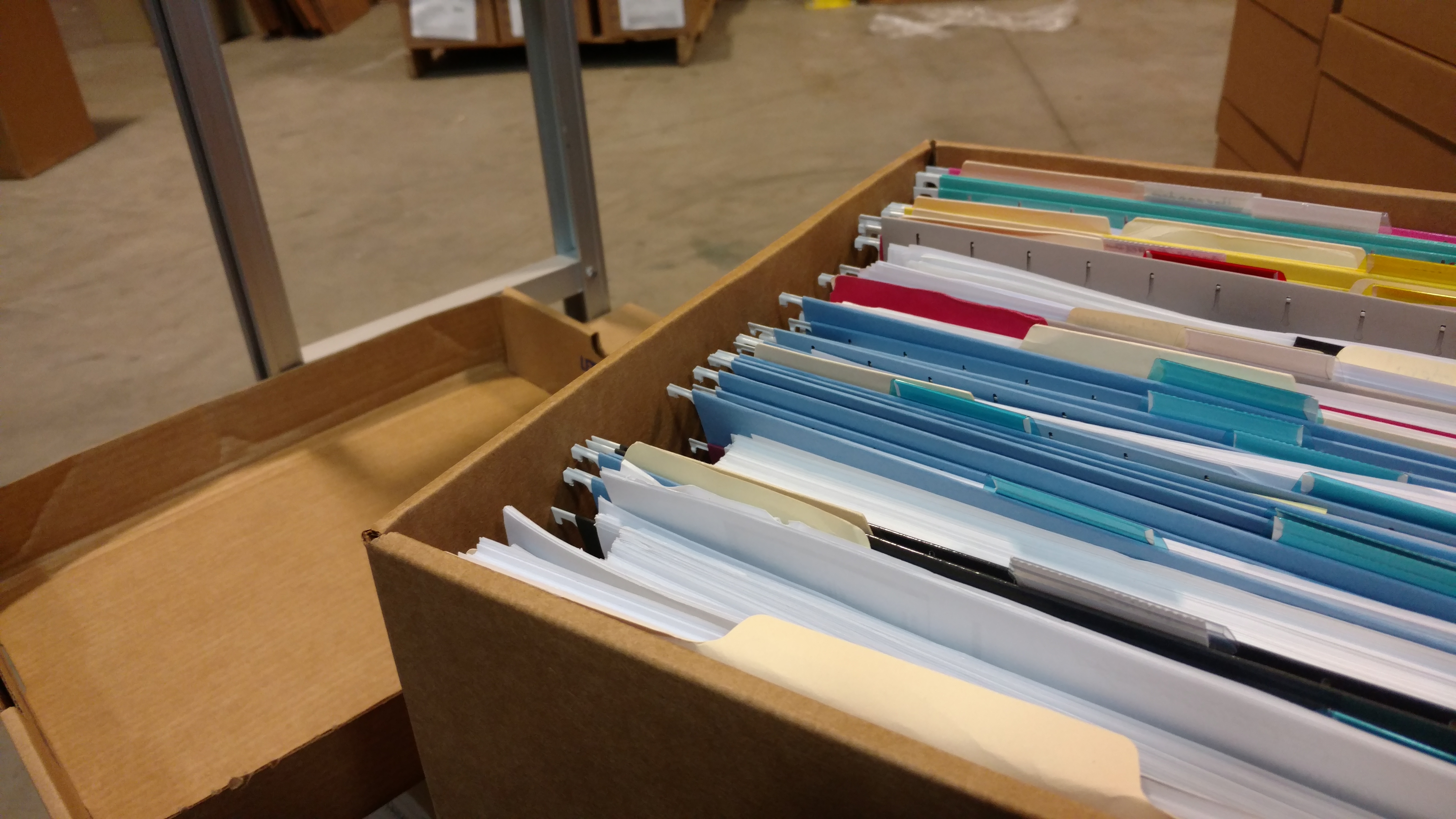This post was written by Lana Mason, Records Management Assistant and Processing Student Assistant. Lana has an Associate of Arts degree in Fine Arts from Piedmont Virginia Community College. She is currently studying Art History at George Mason University. Lana was the recipient of the University Libraries Student Assistant Scholarship for the 2018-19 academic year.
Since I began at George Mason University (GMU), I’ve been working as a processing assistant at the Special Collections Research Center (SCRC). During that time, I’ve become familiar with standard archival policies and procedures, and have worked on a variety of projects aimed at making our historical materials more accessible to the public. For the past few months, I have also been working as an assistant with University Records Management (URM). Working with URM has been an educational experience in how institutional records are handled, and has taught me a lot of useful information about the way the university itself functions.
During my time as a URM assistant, I’ve learned both what records management is, as well as how it differs from archives. Records management deals specifically with documents produced by institutions or individuals as part of the functioning of an organization—in the case of GMU, records produced range from exam answer sheets to immunization forms to staff evaluations. These records are stored for set periods of time based on the type of information contained in them. These time periods are called retention schedules that, in the Commonwealth of Virginia, are legally defined and regulated by the Library of Virginia.[1] Once the end of their retention period is reached, records are confidentially disposed of in order to keep the information present in them secure.
The primary difference I’ve become aware of between archives and records management is how the two fields approach accessibility. Within the archives, most if not all work is focused on making materials available for the public to use. That can mean, for example, producing a finding aid so that the contents of a collection are easily searchable, or digitizing materials so they can be viewed online and not just in person. However, in records management, the materials are by nature highly confidential because they contain sensitive information, such as financial transactions or personally identifiable information (PII) like social security numbers. Therefore, work is focused on keeping records safe and inaccessible. Records are typically accessed infrequently, usually to satisfy an official or legal need, like Freedom of Information Act (FOIA) requests.
At GMU, the university’s records—produced by every office and department on campus—are collectively housed within an on-campus warehouse. URM currently holds over 13,000 records boxes ranging in dates from as far back as the late 1970s up to the present day. My tasks have primarily been focused on ensuring that records are taken in, loaned out when needed, and securely disposed of at the end of their lifespans. Consequently, I spend a lot of time traveling all over campus to deliver records boxes to those who wish to have their documents stored, and after the boxes have been filled, taking them back to the warehouse for storage. The job involves a lot of physical labor—each box when full can weigh up to about 40 pounds, and many offices will typically have at least a few boxes to be stored at a time. URM disposes of records through the use of confidential shredding. These shreds are done in bulk, with several hundred records boxes disposed of at a time; another physically demanding task. I definitely get my exercise for the day in when I work at URM.
Working
with URM is a very different experience than working with SCRC, but the two
jobs are complementary to each other in many ways. The work can certainly be physically
exhausting at times, but I enjoy being active and helping the staff on campus
to keep their records safe and secure. It can be an incredibly satisfying
experience, and is one that I feel has enriched both my personal knowledge and
skill set as well as my relationship with the university itself.
[1] See more information on records management and retention schedules at http://www.lva.virginia.gov/agencies/records/retention.asp
For more information on George Mason University Records Management, please visit this page.
Follow Special Collections Research Center on Social Media at our Facebook, Instagram, and Twitter accounts. To search the collections held at Special Collections Research Center, go to our website and browse the finding aids by subject or title. You may also e-mail us at speccoll@gmu.edu or call 703-993-2220 if you would like to schedule an appointment, request materials, or if you have questions. Appointments are not necessary to request and view collections.

